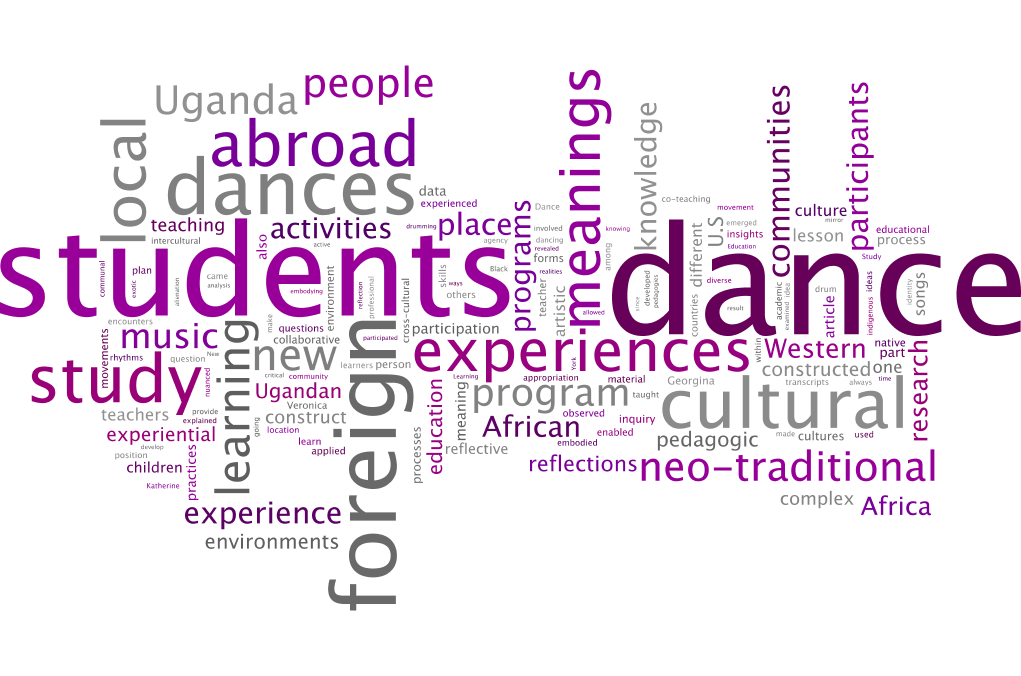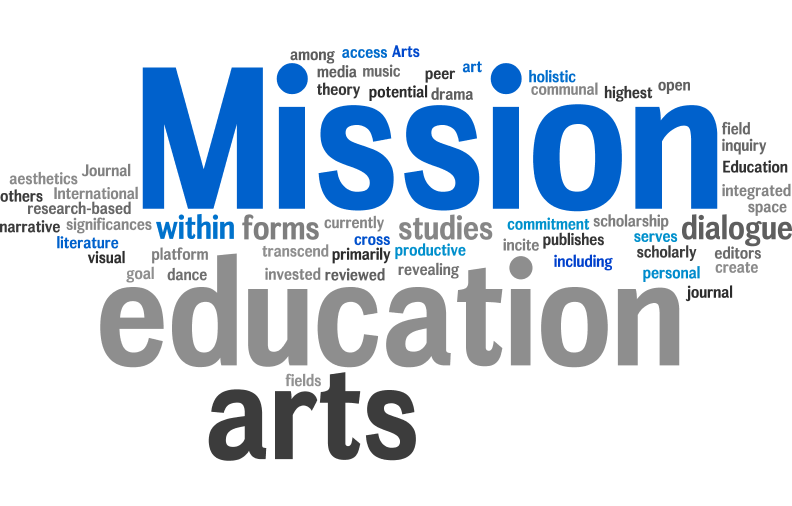| Volume 20 Number 2 | January 18, 2019 |
Dancing with the “Other:” Experiential and Reflective Learning of African Neo-Traditional Dances Through Dance Education Study Abroad Programs
Alfdaniels Mabingo
Makerere University, Uganda
Citation: Mabingo, A. (2019). Dancing with the “other:” Experiential and reflective learning of African neo-traditional dances through dance education study abroad. International Journal of Education & the Arts, 20(1). Retrieved from https://doi.org/10.18113/P8ijea20n2Abstract
The increase in internationalization of education has set off a proliferation of educational models. Study abroad has emerged as one of the educational approaches through which universities can support students to internationalize their experiences, hone their skills and knowledge bases, sharpen professional proficiencies, and broaden their cultural perspectives. What meanings do foreign students who participate in study abroad programs in African dances in local African communities construct? This article engages the theory of experiential learning and concept of Orientalism to provide a critical examination of the meanings that the students from the U.S who took part in dance education study abroad to Uganda constructed from participation in neo-traditional dance activities. A hermeneutic phenomenological research paradigm was applied to collect data from six students from the U.S who took part in the Dance Education study abroad program to Uganda. The findings reveal how the study abroad programs enabled the students to negotiate, question, and conceptualize the idea of “study abroad to Uganda” as a “place” of nativism, exoticism, identity variances, and cultural differences. Critical analyses are made on how the students’ agency in neo-traditional activities cultivated embodied connections to the “other,” allowed for exploration of communalized pedagogies, facilitated holistic learning of dance through music and storytelling, and fostered immersion into “local” artistic and educational realities through collaborative and interactive lesson-planning and co-teaching. Issues of how study abroad in dance can aggravate cultural appropriation are also examined. This article offers insights into the intricate trajectories that students take to construct complex meanings through embodied and reflective participation in dance activities in local African communities, which can be beneficial to dance educators, cross-cultural and intercultural learners, and individuals who run cultural exchange programs.
Visual Abstract
This article is available in PDF format.





